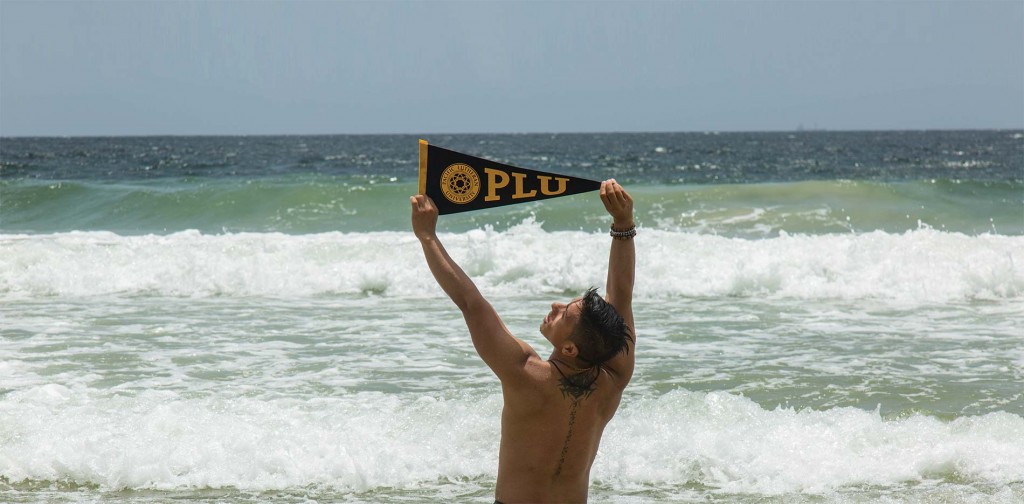Page 62 • (844 results in 0.023 seconds)
-
the Reverend Bjug Harstad, PLU’s first president. In naming the University, these pioneers recognized the important role that a Lutheran educational institution on the West Coast of America could play in the emerging future of the region. They especially wanted the institution to educate immigrants, but they also wanted it to produce graduates who would serve and lead in their communities. Education—and educating for service—is a venerated part of the Scandinavian traditions from which these
-
“Jewish Women as Couriers in the Resistance”Keynote: Dr. Lenore J. Weitzman7:00 p.m. – Keynote: “Jewish Women as Couriers in the Resistance” (Regency Room, AUC) Lenore J. Weitzman, Clarence Robinson Professor of Sociology and Law at George Mason University (emeritus) Weitzman is the author of 5 books, including the award-winning The Divorce Revolution: the Unexpected Social and Economic Consequences for Women and Children in America (1985), which focused national attention on the economic
-
especially during the Portuguese Colonial period from 1920 to 1974. This had a major impact on their society and molded much of their art into what is seen today. The Makonde are an agrarian kin-based and matrilineal society. They adhere to an ancestrally based spirituality, despite pressures to convert religiously and adjust economically to the capitalist market. Their matrilineal social structure, meaning ancestry is traced through the female line, is rooted in their creation story, which speaks of the
-
during the Portuguese Colonial period from 1920 to 1974. This had a major impact on their society and molded much of their art into what is seen today. The Makonde are an agrarian kin-based and matrilineal society. They adhere to an ancestrally based spirituality, despite pressures to convert religiously and adjust economically to the capitalist market. Their matrilineal social structure, meaning ancestry is traced through the female line, is rooted in their creation story, which speaks of the first
-
during the Portuguese Colonial period from 1920 to 1974. This had a major impact on their society and molded much of their art into what is seen today. The Makonde are an agrarian kin-based and matrilineal society. They adhere to an ancestrally based spirituality, despite pressures to convert religiously and adjust economically to the capitalist market. Their matrilineal social structure, meaning ancestry is traced through the female line, is rooted in their creation story, which speaks of the first
-
during the Portuguese Colonial period from 1920 to 1974. This had a major impact on their society and molded much of their art into what is seen today. The Makonde are an agrarian kin-based and matrilineal society. They adhere to an ancestrally based spirituality, despite pressures to convert religiously and adjust economically to the capitalist market. Their matrilineal social structure, meaning ancestry is traced through the female line, is rooted in their creation story, which speaks of the first
-
during the Portuguese Colonial period from 1920 to 1974. This had a major impact on their society and molded much of their art into what is seen today. The Makonde are an agrarian kin-based and matrilineal society. They adhere to an ancestrally based spirituality, despite pressures to convert religiously and adjust economically to the capitalist market. Their matrilineal social structure, meaning ancestry is traced through the female line, is rooted in their creation story, which speaks of the first
-

friends,” said Angie Hambrick, PLU’s associate vice president of diversity, justice and sustainability. “The trip aligned perfectly with the values of the Diversity Center — perspective taking, critical reflection, community, and care — and allowed us to fully and authentically engage with the people and culture of T&T and with each other.” The group began the trip by ranging all across Trinidad — touring the capital city of Port of Spain; learning the history of the islands’ colonial past; exploring
-
of the islands’ colonial past; exploring the Caroni Swamp and seeing the nation’s signature bird, the scarlet ibis; taking in a performance by the Malick Folk Performing Group, sinking into the sand of Maracas Bay — before taking the short flight over to Tobago. The alumni began there with a day driving around the island to get a feel of the historical landmarks, monuments and foods, then traveled to island icons like the Buccoo Reef’s Nylon Pools, Store Bay Beach, Argyle Waterfall, Englishman’s
-
Bailey “Community Formation withing Fan Fiction and the Internet: The Importance of Readers and Writers” Lukas Aberle “Competing Masculinities Among Indigenous Groups in Oaxaca, Mexico” Archaeology, Identity, and Shifting CulturesThursday May 9, 2019 / 10:00 - 11:40 a.m.Hauge Administration Building, Room 202KD WilliamsIan FarrellTanner PremoCessna WestraKD Williams “Intentional Development of Fictional Personas in Nordic Living History Populations of North America” Ian Farrell “Domestic Obsidian
Do you have any feedback for us? If so, feel free to use our Feedback Form.


